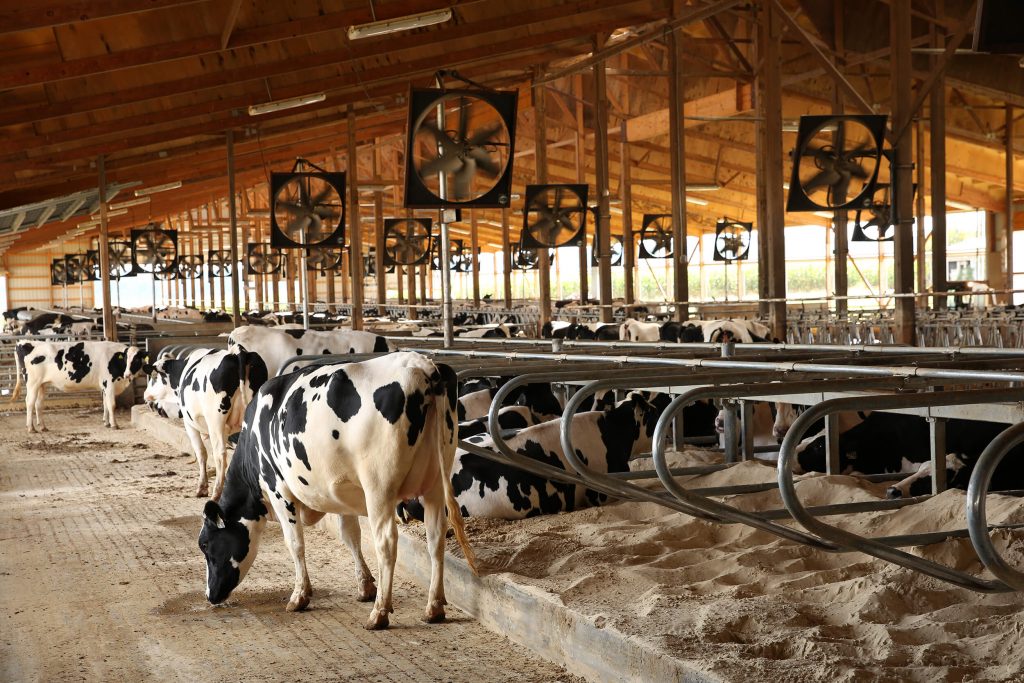For More Information
For more information
Contact CDCB CEO, João Dürr

Nearly 335 individuals from 26 countries registered for the CDCB Industry Meeting held October 20, 2021. With the focus on cow mobility and lameness, presenters shared opportunities for genetic improvement and establishment of a data pipeline to develop credible genetic evaluations. The breadth of questions for the presenters and panelists was inspiring as we collaborate to develop genetic solutions and management tools that can improve hoof health and lameness in dairy cows.
Save to your Calendar
By Jay Weiker, CDCB Chair
By Gerard Cramer, DVM, DVSc, University of Minnesota
By Kristen Parker Gaddis, Ph.D., CDCB Geneticist
Gerard Cramer, Kristen Parker Gaddis, Terry Canning, and Josh Vander Well of Black Soil Dairy, moderated by Javier Burchard
By Asha Miles, PhD, USDA Animal Genomics and Improvement Laboratory
By João Dürr, CDCB CEO
Dr. Gerard Cramer has spent his whole life finding ways to work with dairy cows. He managed a dairy farm, owned a foot health-specific veterinary practice and earned Doctor of Veterinary Medicine and Doctor of Veterinary Science degrees from the University of Guelph. On the faculty at University of Minnesota since 2013, Gerard splits his time between educating veterinary and graduate students and doing foot health related research. CDCB is pleased to collaborate with Gerard – an expert in hoof health with experience that lends to practical and beneficial solutions
At CDCB since 2016, Dr. Parker Gaddis has led incorporation of cow health records into the CDCB database, implementation of disease resistance evaluations for Holsteins and Jerseys, and development of the Feed Saved trait. An author or co-author of several published papers, Kristen frequently speaks at global conferences. Her PhD research at North Carolina State University focused on utilization of producer-recorded cow health information to improve understanding of the genetics behind disease resistance, analysis of health data, and estimation of traditional and genomic breeding values for common health traits. Kristen conducted Postdoctoral research at University of Florida and USDA AGIL.
Terry Canning is co-founder and CEO of CattleEye, a tech company mission with the mission to provide the next generation of ruminant livestock monitoring solutions. The son of an Irish dairy farmer, Terry spent a decade managing datacomms projects for global telecommunications companies, before he came back to dairy with novel ideas to enhance technology use and record-keeping on dairy farms. His innovative thinking is definitely an asset as we work to improve the hoof health of dairy cattle
Academically Verified Autonomous Livestock Monitoring
Josh Vander Well joins us from Black Soil Dairy in Sioux Center, Iowa, and he will share the dairy’s perspective as a partner in the CDCB-University of Minnesota hoof health project.
Dr. Asha Miles joined USDA AGIL in March 2021 and quickly embraced the role for research and development of genetic applications that can future improve dairy cattle and farm livelihood. Dr. Miles’ research and academic background spans biotechnology, molecular genetics, immunology, epidemiology, and microbiome science. Her goals as a researcher are to apply these skills in an integrated approach to understand animal health and production, and to translate these findings into innovative interventions which can be applied on farm
All times shown in EST.
2:00 – 2:10 PM
Jay Weiker, CDCB Chair
2:10 – 2:30 PM
By Gerard Cramer, DVM, DVSc, University of Minnesota
2:30-2:45 PM
By Kristen Parker Gaddis, Ph.D., CDCB Geneticist
2:45-2:55 PM
By Terry Canning, Cattle Eye
2:55-3:40 PM
Gerard Cramer, Kristen Parker Gaddis, Terry Canning, and Josh Vander Well of Black Soil Dairy, moderated by Javier Burchard
3:40-3:50 PM
By Asha Miles, PhD, USDA Animal Genomics and Improvement Laboratory
3:50-4:00 PM
João Dürr, CDCB CEO
CDCB hosts a variety of online and in-person events to share research, new developments and application of dairy genetic evaluations.
CDCB experts can share information on genetic improvement, genomic impact, research and developments, and progress around feed efficiency, health, fertility and other important traits.